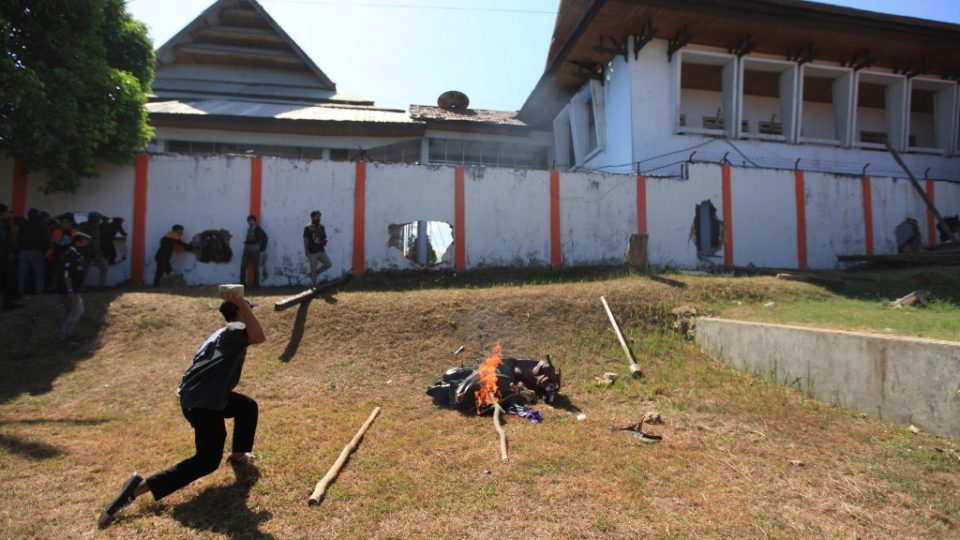A second Indonesian student protester has died in demonstrations against a raft of divisive legal reforms, including banning pre-marital sex and weakening the anti-graft agency, sources said, as fresh unrest was expected Friday.
The 19-year-old engineering student died in hospital of blunt-force injuries to his head sustained in riots that erupted in Kendari city on Sulawesi island on Thursday, local hospital director Sjarif Subijakto told AFP.
The victim’s relatives also confirmed the teen’s death early Friday. The precise circumstances surrounding his death were not clear.
“His father has accepted his death, he just wants to know how it happened,” relative Rahmat, who gave only his first name, told AFP in Kendari.
“But his mother is still in shock.”
It was the second fatality directly linked to days of street battles across the Southeast Asian nation that have left hundreds injured and sparked calls for a probe into allegations of police brutality.
This week’s unrest was fuelled by a proposed bill that includes dozens of legal changes — from criminalising pre-marital sex and restricting sales of contraceptives, to making it illegal to insult the president and toughening the Muslim-majority country’s blasphemy law.
Passage of the reforms has now been delayed.
There has also been a backlash against a separate bill that critics fear would dilute the powers of Indonesia’s corruption-fighting agency, including its ability to wire-tap graft suspects.
The demonstrations are among the biggest since mass street protests in 1998 brought down the three-decade Suharto dictatorship, and they come several weeks before re-elected president Joko Widodo is to kick off a second term.
Widodo’s administration has sought to portray the mass demonstrations as being hijacked by agitators aiming to disrupt government — and suggested they were similar to deadly post-election riots that paralysed Jakarta in May.
On Thursday, a 21-year-old university student in Kendari — where the local parliament building was torched — was rushed to hospital suffering from a chest wound and later died.
Questions have swirled around his death as police denied responsibility.
“It was a gunshot wound, but I cannot confirm whether it was a live bullet or rubber bullet,” said Kendari doctor Yudi Ashari, who treated the first victim.
When asked by an AFP reporter if the first victim was killed by a live round, the forensic doctor who performed his autopsy answered “yes” several times on Friday.
Police have insisted that officers deployed to the Kendari riots were not equipped with live rounds or rubber bullets.



